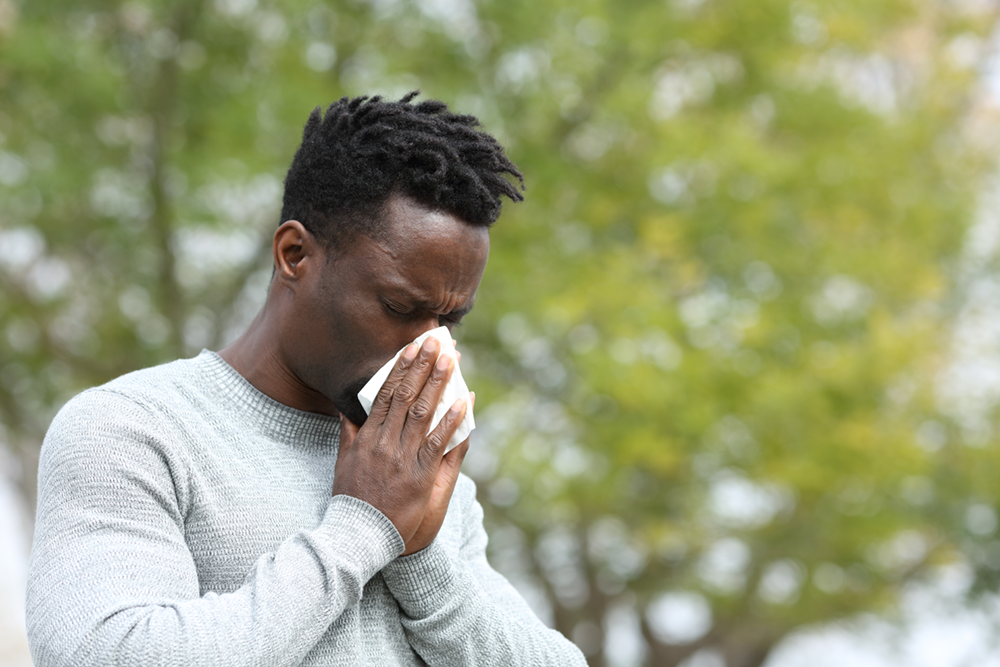As the days grow longer and warmer, many of us eagerly anticipate the joys of summer – picnics in the park, lazy beach days, and vibrant outdoor activities. However, for a significant portion of the population, summer can bring along a frustrating and uncomfortable companion: allergies. While spring is traditionally associated with allergies, the warmer months also trigger a range of allergens that can wreak havoc on our health and enjoyment of the season. In this blog post, we will explore the common culprits of summer allergies and provide practical tips to help you cope with these seasonal nuisances.
Understanding Summer Allergies
Summer allergies, also known as seasonal allergies or hay fever, are immune system responses to allergens that are more prevalent during the summertime. These allergens can be either pollen from trees, grasses, or weeds, or even mold spores that thrive in the warm and humid conditions of summer.
The body’s immune system perceives these harmless substances as threats and releases histamines, leading to a cascade of allergic symptoms. Common symptoms of summer allergies include:
- Sneezing and runny nose
- Itchy and watery eyes
- Nasal congestion
- Coughing
- Fatigue
- Headache
Identifying Common Summer Allergens
To effectively manage summer allergies, it is crucial to identify the primary triggers. Here are the most common allergens during the summertime:
- Pollen: Trees, grasses, and weeds release pollen into the air for fertilization. Common culprits include oak, birch, cedar, ragweed, and ryegrass.
- Mold Spores: Warm and humid weather encourages the growth and dispersion of mold spores, which can be found in damp areas, such as piles of decaying leaves or compost.
- Insect Stings and Bites: Bee, wasp, and hornet stings, along with insect bites, can cause allergic reactions in some individuals.
Tips to Manage Summer Allergies
While it may be challenging to completely avoid allergens, incorporating these strategies into your daily routine can significantly alleviate the impact of summer allergies:
- Monitor Pollen Counts: Stay informed about pollen counts in your area, and plan outdoor activities on days with lower pollen levels. Several weather websites and apps provide daily pollen forecasts.
- Limit Outdoor Exposure: If possible, avoid spending too much time outdoors during peak pollen hours (usually early morning and late afternoon).
- Keep Indoor Air Clean: Use air conditioning with HEPA filters to keep indoor air pollen-free. Keep windows and doors closed during high pollen days.
- Keep Your Home Dry: Use a dehumidifier to reduce indoor humidity and prevent mold growth. Fix any leaks promptly.
- Be Mindful of Clothing: When spending time outside, wear a wide-brimmed hat and sunglasses to protect your face and eyes from pollen. Consider changing and washing your clothes after spending time outdoors.
- Use Allergy Medication: Over-the-counter antihistamines can provide relief from allergy symptoms. However, it’s essential to consult your doctor before starting any medication.
- Stay Hydrated: Drinking plenty of water can help thin mucus secretions and ease nasal congestion.
- Natural Remedies: Some people find relief from using saline nasal rinses. Discuss these options with your healthcare provider.
- Avoid Stinging Insects: If you have a history of insect allergies, take precautions like wearing closed-toe shoes, avoiding scented products, and keeping food and drinks covered during outdoor activities.
Summer allergies need not dampen your spirits or prevent you from enjoying the best of the season. By understanding the triggers and taking preventive measures, you can effectively manage and minimize the impact of summer allergies on your health and well-being. Remember to consult your healthcare provider if your symptoms persist or worsen, as they can provide personalized advice and treatment options. With the right approach, you can embrace the joys of summer with open arms and a clear nose!


Recent Comments